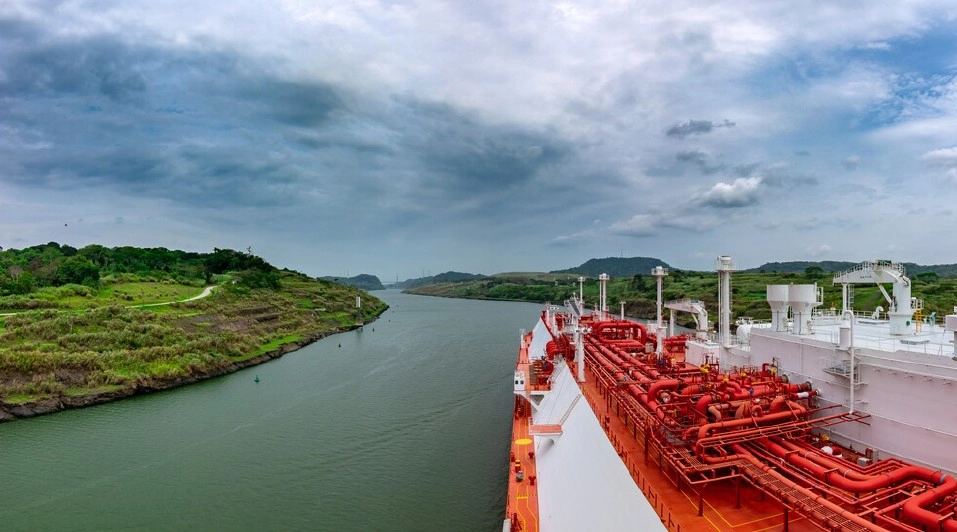
Source: Energy Intelligence
The Panama Canal Authority (ACP) announced last week that a total of 24 daily transits will bepermitted through the maritime route from Nov. 7, down from the 36 daily transit slots typicallyallowed, in light of the lowest monthly precipitation in the region since records began in the1950s. The lack of rain impacts water levels at the artificial Gatun Lake, used to operate thewaterway’s locks. From February onwards, transit will be reduced to 18 per day due to projectedrainfall, ACP said.
The transit restrictions will result in more US LNG cargoes bound for Asia transiting either theSuez Canal or the Cape of Good Hope, market observers say. “The current restrictions are untilthe end of February, yet with the increased US LNG production the share of Suez and Cape interms of transport to Asia Pacific is just going to increase,” MET Group’s LNG trading team tellsEnergy Intelligence.
